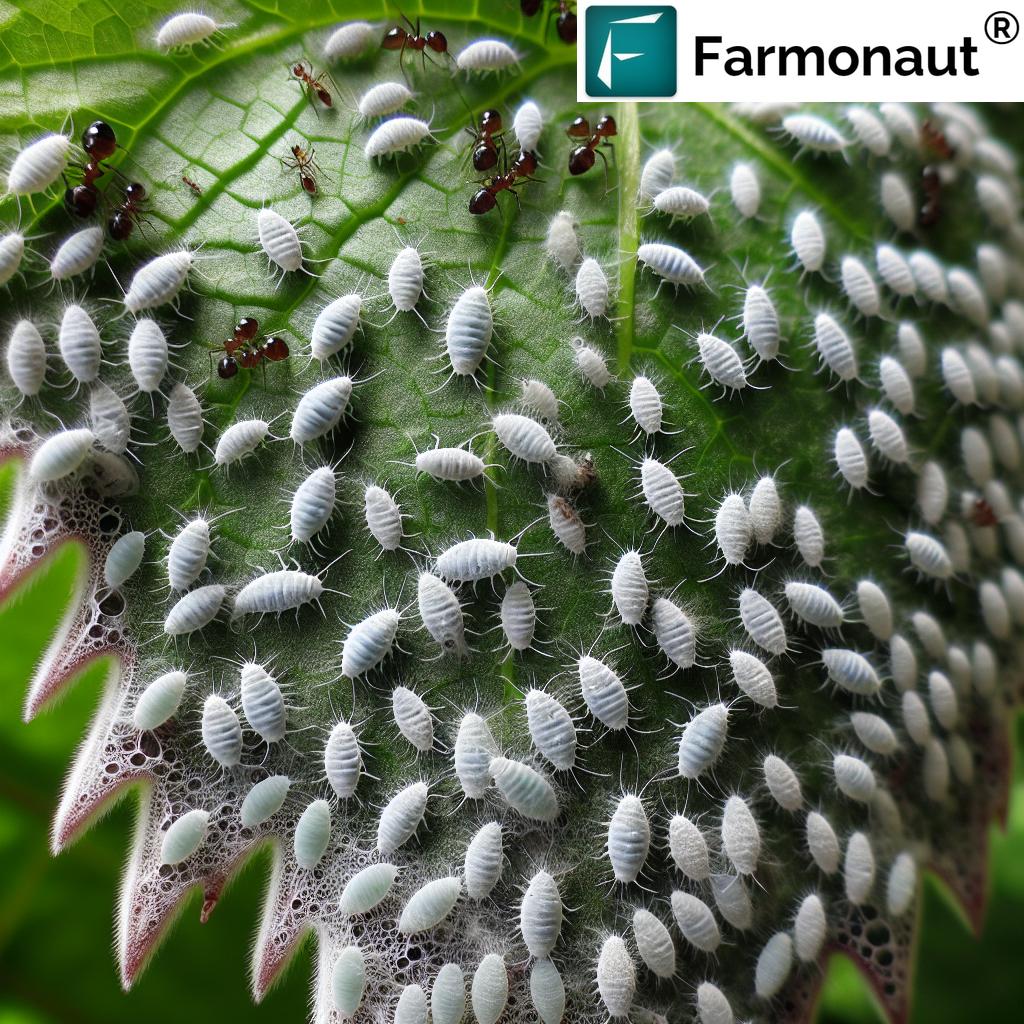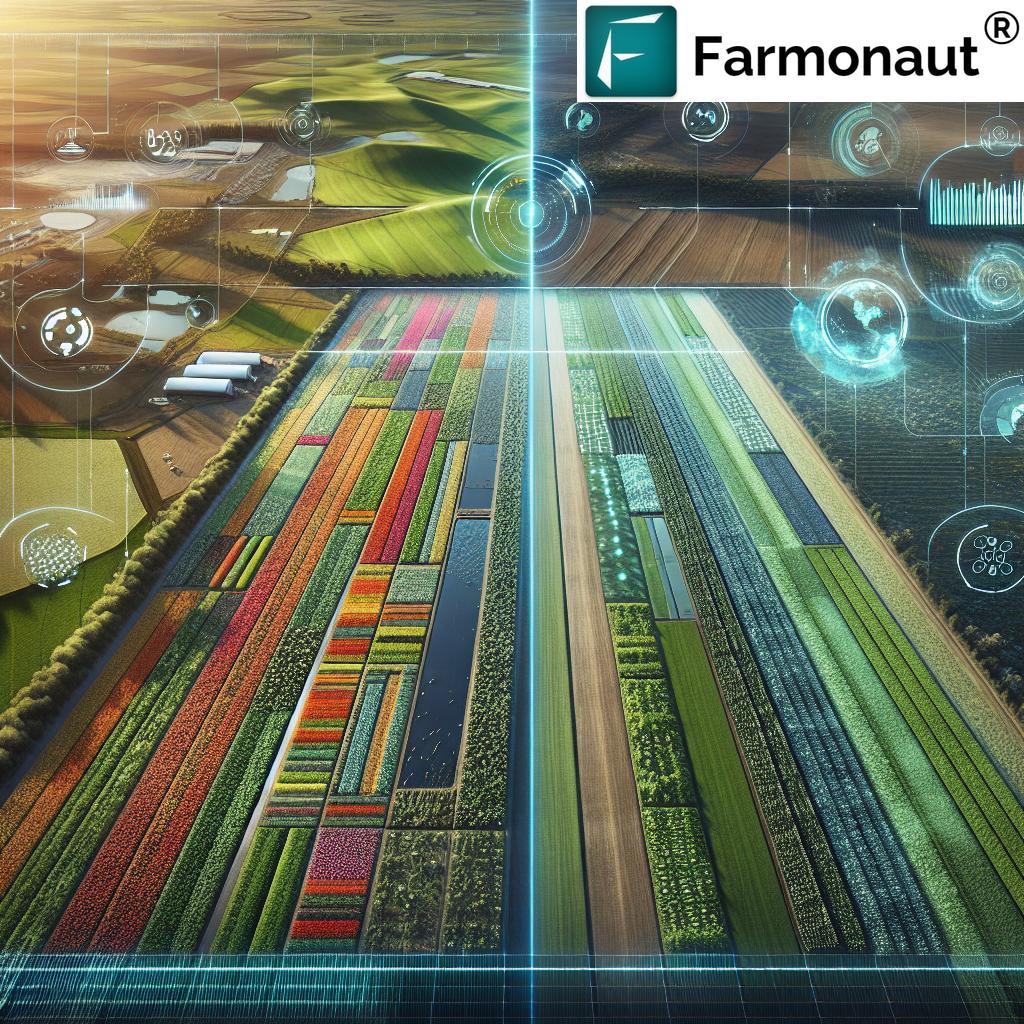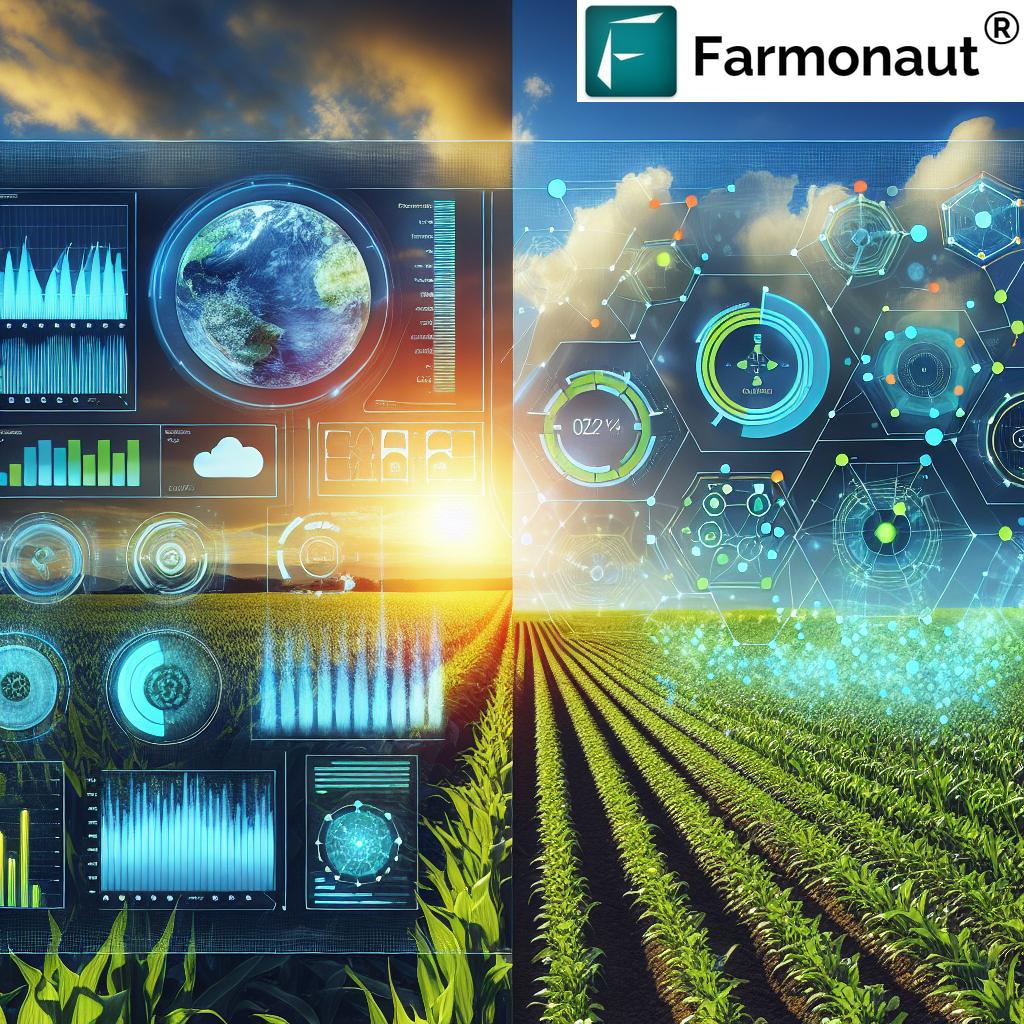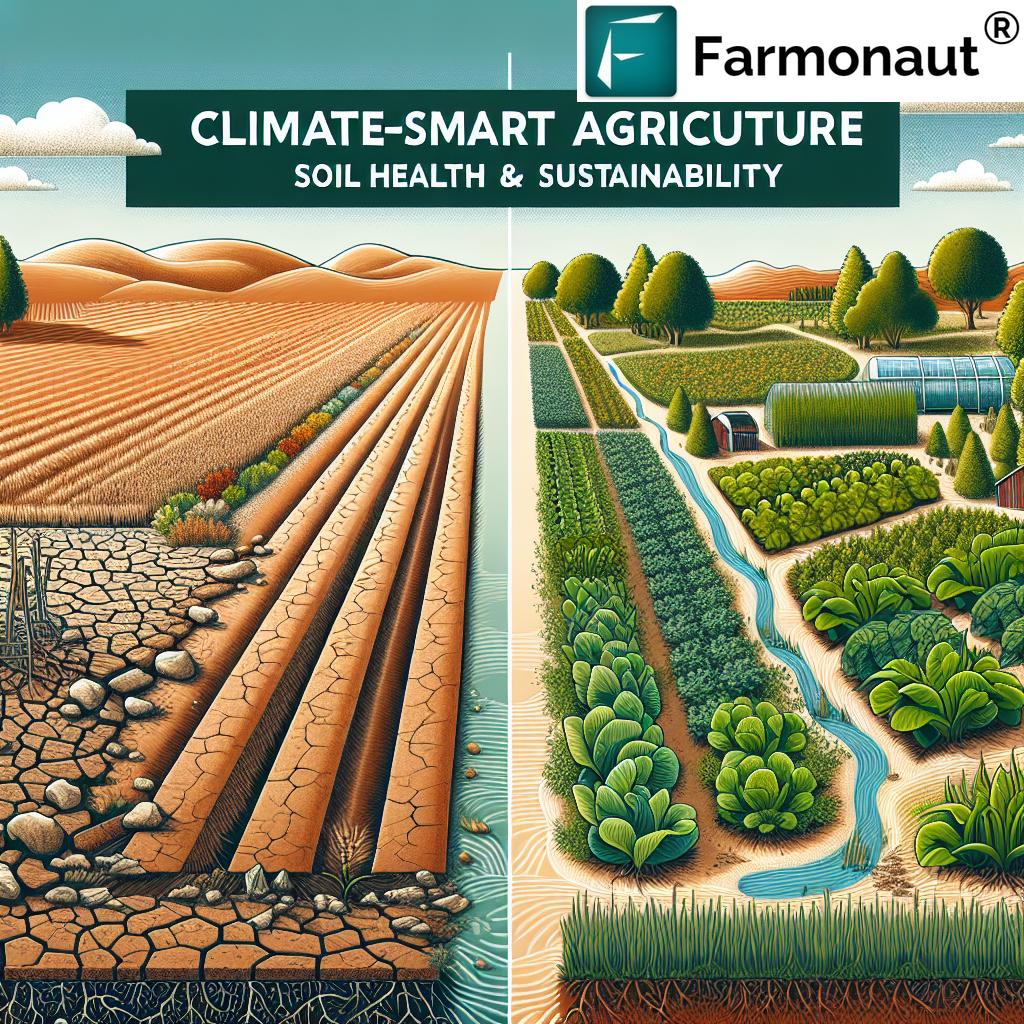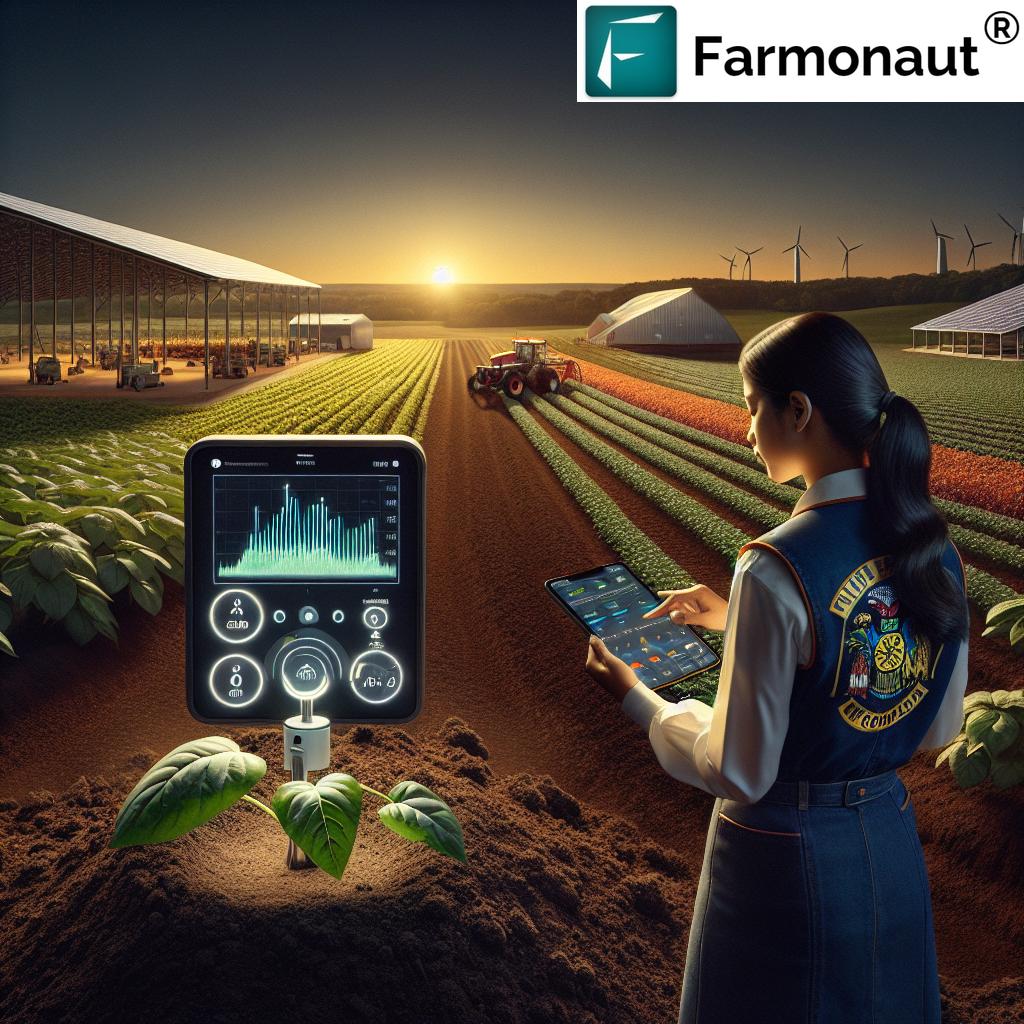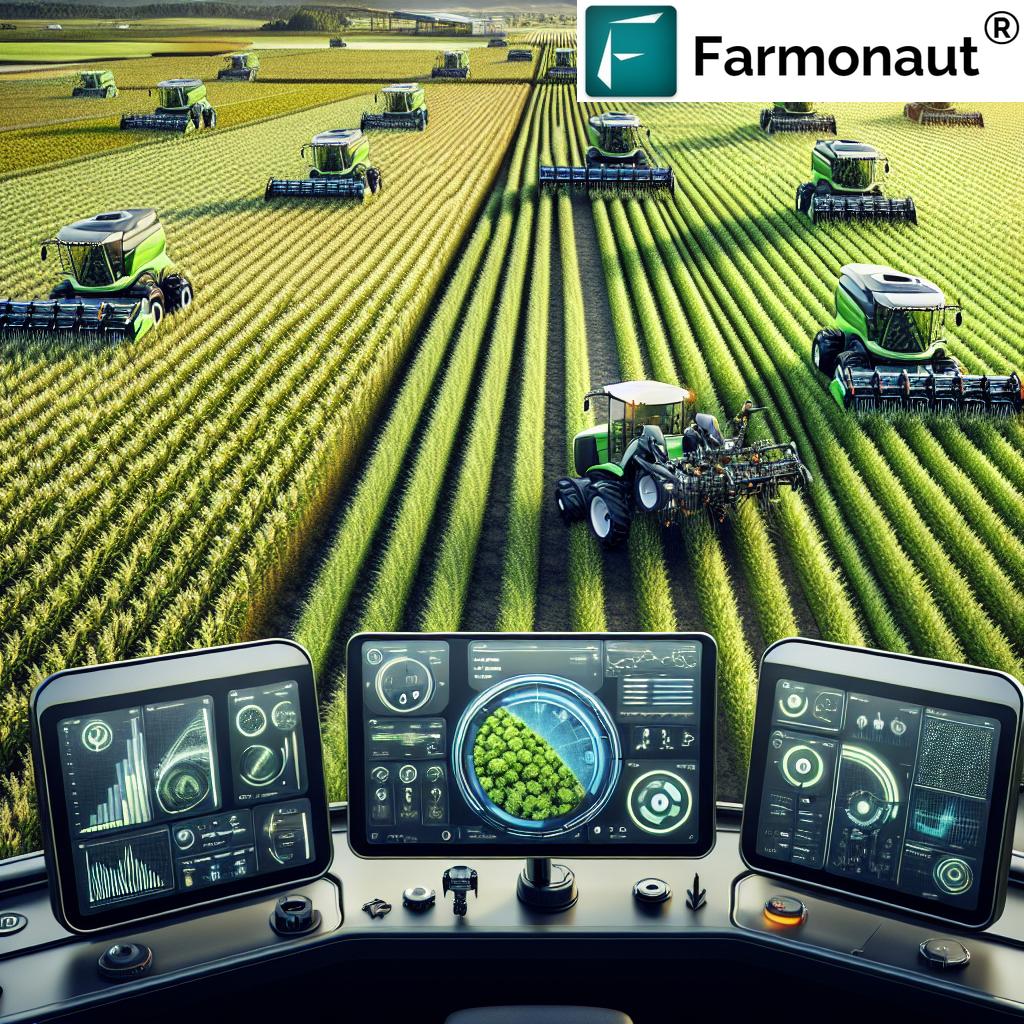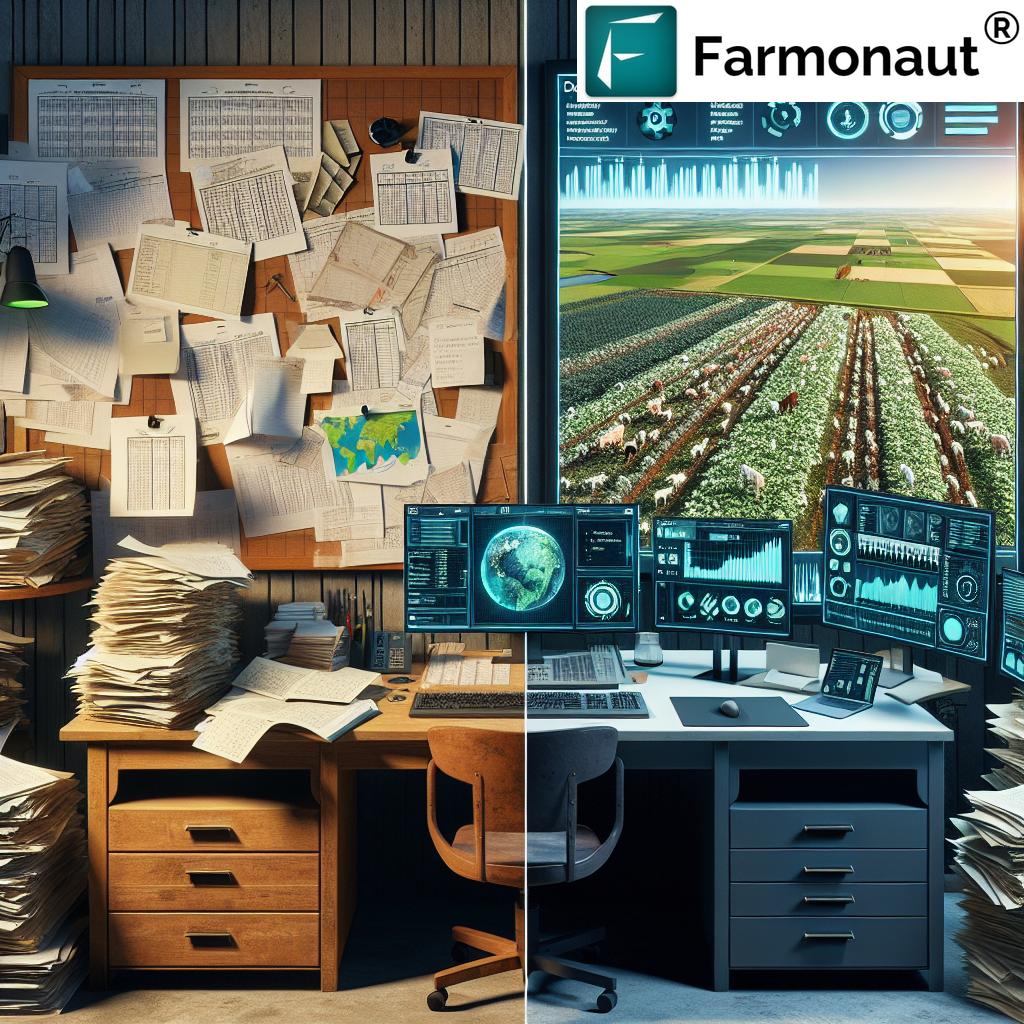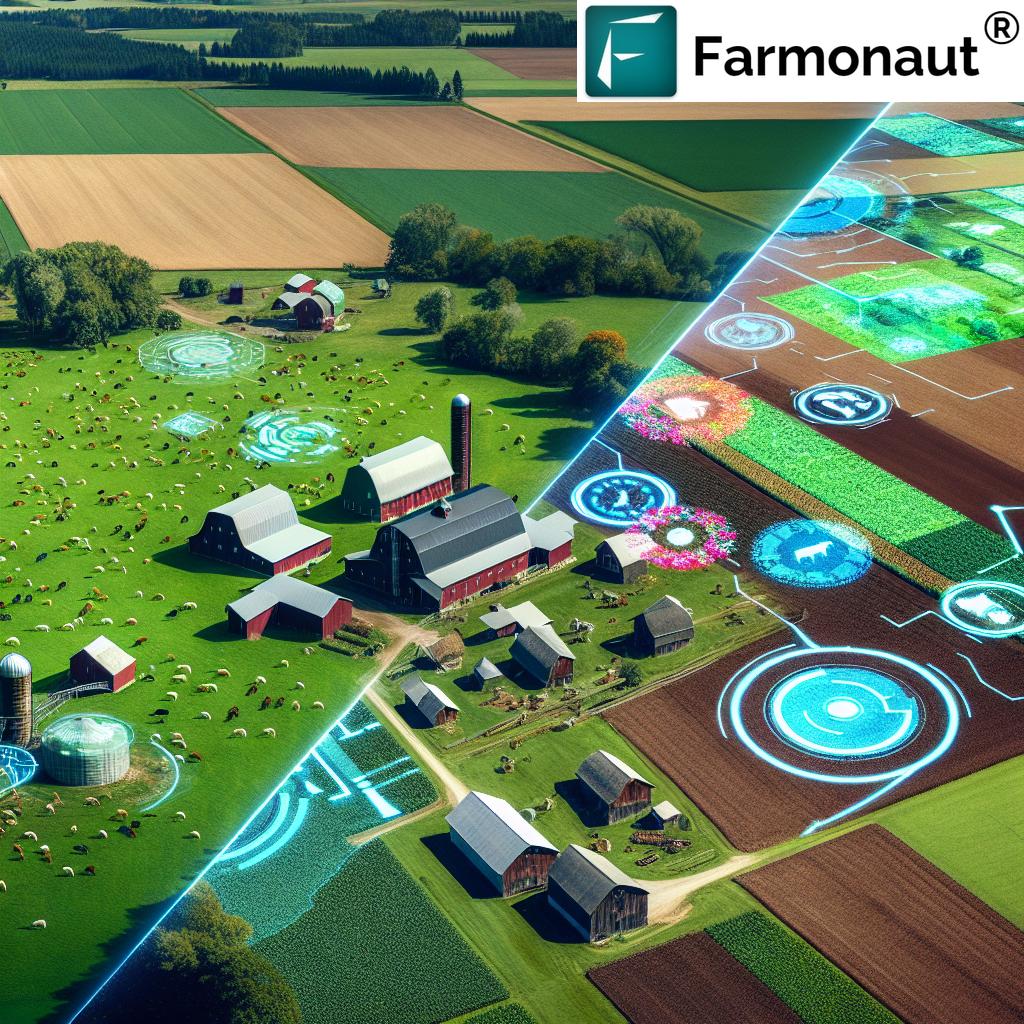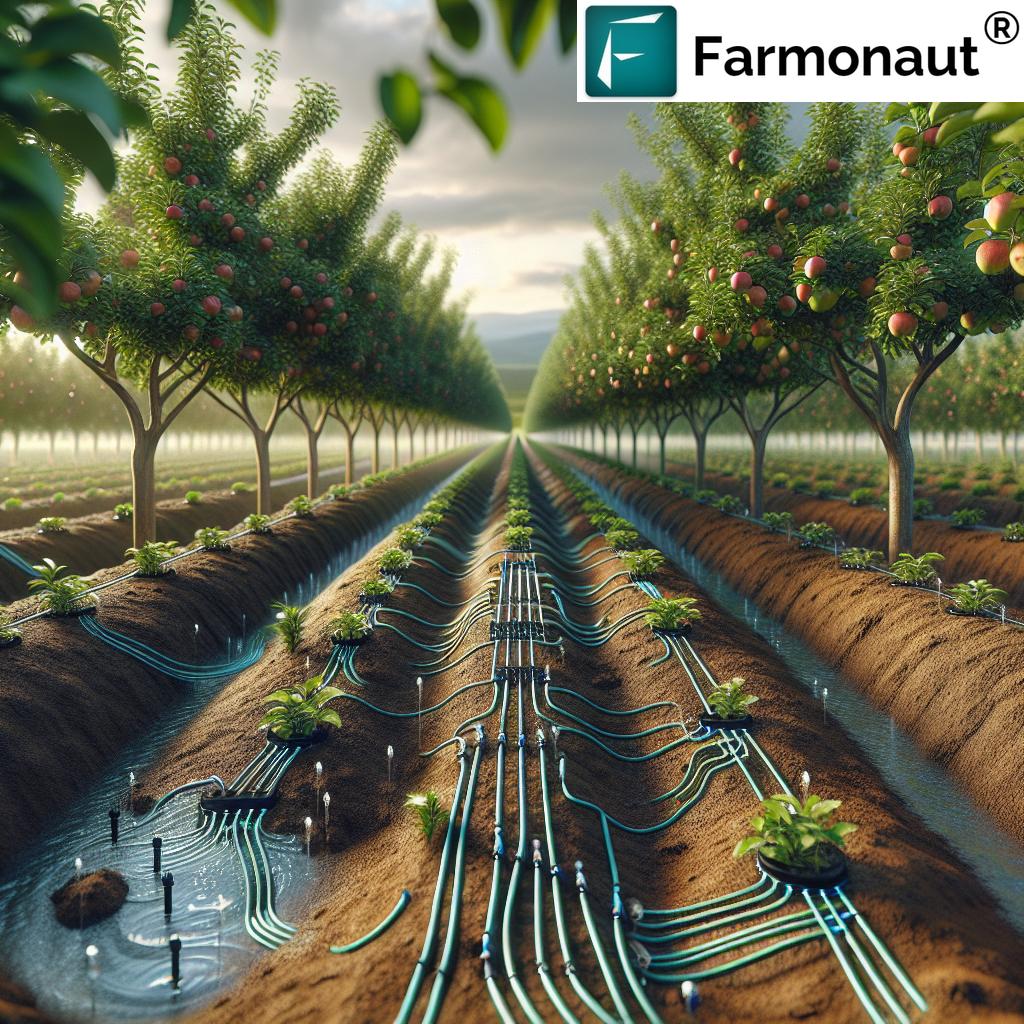Revolutionizing Australian Wine Exports: How GIS and Agtech Drive Sustainable Vineyard Management
“Australian wine exports reached $2.89 billion in 2020, with over 60% of production exported to 100+ countries worldwide.”
Welcome to our comprehensive exploration of how sustainable wine production and Australian wine exports are reshaping the global wine landscape. In this guide, we’ll delve into the innovative vineyard management techniques that are propelling Australia’s wine industry to new heights in the global wine markets.
The Australian Wine Industry: A Global Powerhouse
Australia has long been recognized as a major player in the international wine scene. Our diverse climate and unique terroir have given rise to a wide array of exceptional wines that have captivated palates worldwide. From the sun-drenched vineyards of the Barossa Valley to the cool-climate regions of Tasmania, Australian winemakers have consistently demonstrated their ability to produce world-class wines.
In recent years, the Australian wine industry has faced numerous challenges, including climate change, shifting consumer preferences, and intense global competition. However, these challenges have also spurred innovation and a renewed focus on sustainability, leading to the adoption of cutting-edge technologies and practices that are revolutionizing the way we grow grapes and make wine.
GIS in Viticulture: Mapping the Future of Winemaking
GIS (Geographic Information Systems) in viticulture has emerged as a game-changing tool for vineyard managers and winemakers. By harnessing the power of spatial data and analysis, GIS technology enables us to gain unprecedented insights into our vineyards and optimize every aspect of wine production.
“GIS technology in viticulture can increase vineyard efficiency by up to 30% through precise mapping and analysis of soil conditions.”
- Precision Viticulture: GIS allows for highly accurate mapping of vineyard blocks, soil types, and microclimates. This detailed information helps winemakers make informed decisions about grape variety selection, planting density, and irrigation strategies.
- Resource Management: By analyzing topography and soil moisture levels, GIS helps optimize water usage and reduce waste, contributing to more sustainable wine production.
- Yield Prediction: Advanced GIS models can forecast grape yields with remarkable accuracy, allowing wineries to plan their production and marketing strategies more effectively.
- Disease and Pest Management: GIS-based monitoring systems can detect early signs of vine diseases or pest infestations, enabling targeted interventions and reducing the need for blanket chemical applications.
At Farmonaut, we’re proud to be at the forefront of this technological revolution in viticulture. Our satellite-based farm management solutions provide vineyard managers with real-time data on crop health, soil moisture, and other critical metrics. This information empowers winemakers to make data-driven decisions that optimize yield, quality, and sustainability.
Climate-Smart Practices in Australian Vineyards
The climate impact on vineyards is becoming increasingly apparent, with changing weather patterns affecting grape ripening, wine quality, and harvest timing. To address these challenges, Australian winemakers are adopting climate-smart practices that not only mitigate environmental impacts but also enhance wine quality.
- Water Conservation: Drip irrigation systems and moisture sensors help conserve water while ensuring optimal vine health.
- Canopy Management: Adjusting vine canopies to manage sun exposure and heat stress helps maintain grape quality in warmer conditions.
- Alternative Varieties: Planting grape varieties better suited to warmer climates ensures continued production as temperatures rise.
- Carbon Sequestration: Implementing cover crops and minimizing soil disturbance helps sequester carbon and improve soil health.
Farmonaut’s advanced satellite monitoring and AI-driven insights play a crucial role in implementing these climate-smart practices. Our platform provides vineyard managers with detailed information on soil moisture, vegetation health, and weather patterns, enabling them to make precise adjustments to their management strategies.

Australian Wine Regions: A Tapestry of Terroir
The diversity of Australian wine regions is one of our industry’s greatest strengths. Each region offers a unique combination of soil, climate, and tradition that contributes to the rich tapestry of Australian wines. Let’s explore some of the key regions and their distinctive characteristics:
| Wine Region | Primary Grape Varieties | Climate Challenges | Farmonaut System Benefits |
|---|---|---|---|
| Barossa Valley | Shiraz, Cabernet Sauvignon, Grenache | Heat waves, drought | 15% water savings through precision irrigation |
| Hunter Valley | Semillon, Chardonnay, Shiraz | Humidity, heavy rainfall | 20% reduction in fungicide use through early disease detection |
| Margaret River | Cabernet Sauvignon, Chardonnay, Sauvignon Blanc | Varying ripening conditions | 10% improvement in harvest timing accuracy |
| Yarra Valley | Pinot Noir, Chardonnay, Cabernet Sauvignon | Frost risk, bushfire smoke taint | 25% reduction in frost damage through targeted frost protection |
| Coonawarra | Cabernet Sauvignon, Shiraz | Soil variability, water stress | 18% increase in grape quality through optimized soil management |
Farmonaut’s satellite-based monitoring system is tailored to address the unique challenges faced by each of these regions. By providing detailed, real-time data on vineyard conditions, our technology enables winemakers to fine-tune their management practices and produce wines that truly express their terroir.
Sustainable Viticulture Practices: The Future of Australian Wine
Sustainable viticulture practices are no longer just a trend; they’re a necessity for the long-term success of the Australian wine industry. By embracing environmentally friendly techniques, winemakers are not only preserving the land for future generations but also producing higher quality wines that appeal to eco-conscious consumers.
- Organic Winemaking: Many Australian vineyards are transitioning to organic practices, eliminating synthetic pesticides and fertilizers.
- Biodynamic Viticulture: This holistic approach to vineyard management considers the vineyard as a self-sustaining ecosystem, working in harmony with natural cycles.
- Integrated Pest Management (IPM): By using natural predators and targeted interventions, IPM reduces the need for chemical pesticides while effectively managing vineyard pests.
- Energy Efficiency: Solar panels, energy-efficient equipment, and gravity-flow winery designs are reducing the carbon footprint of wine production.
Farmonaut’s technology plays a crucial role in implementing these sustainable practices. Our AI-driven advisory system, Jeevn AI, provides personalized recommendations for pest management, irrigation, and fertilization, helping vineyards reduce their environmental impact while improving wine quality.
Wine Export Strategies: Navigating Global Markets
As we continue to expand our presence in global wine markets, developing effective wine export strategies is crucial. The Australian wine industry is focusing on several key areas to boost exports and maintain our competitive edge:
- Market Diversification: While China has been a significant market for Australian wines, recent challenges have highlighted the importance of diversifying our export destinations. We’re seeing increased focus on markets in Southeast Asia, North America, and Europe.
- Premium Positioning: Australian wines are increasingly being positioned as premium products, emphasizing their unique terroir and high quality to command better prices in international markets.
- Sustainability Credentials: With growing consumer interest in sustainable and organic wines, Australian producers are leveraging their eco-friendly practices as a key selling point.
- Digital Marketing: Embracing e-commerce and social media marketing to reach younger consumers and adapt to changing retail landscapes.
Farmonaut’s blockchain-based traceability solution is proving invaluable in these export strategies. By providing transparent, verifiable data on wine production from vineyard to bottle, we’re helping Australian winemakers build trust with international consumers and differentiate their products in crowded markets.
Agtech Solutions Revolutionizing Wineries
The adoption of agtech for wineries is transforming every aspect of wine production, from grape growing to bottling and distribution. These innovative technologies are helping Australian wineries improve efficiency, reduce costs, and enhance wine quality:
- Drone Technology: Drones equipped with multispectral cameras provide detailed aerial imagery of vineyards, helping identify areas of stress or disease.
- IoT Sensors: Smart sensors throughout the vineyard and winery provide real-time data on temperature, humidity, and fermentation progress.
- Robotics: Automated pruning and harvesting robots are increasing efficiency and reducing labor costs.
- AI-Powered Analytics: Machine learning algorithms analyze vast amounts of data to optimize fermentation processes and blend selections.
Farmonaut’s platform integrates seamlessly with these agtech solutions, providing a centralized hub for data collection, analysis, and decision-making. Our AI-driven insights help winemakers make sense of the vast amount of data generated by these technologies, translating it into actionable strategies for improved wine production.

Wine Market Research: Understanding Consumer Trends
Staying ahead in the competitive global wine landscape requires in-depth wine market research. Australian wine producers are investing heavily in understanding consumer preferences and market dynamics:
- Emerging Markets: Identifying and targeting new markets with growing wine consumption, such as India and Southeast Asian countries.
- Millennial Preferences: Adapting marketing and packaging strategies to appeal to younger wine drinkers who value experiences and sustainability.
- Alternative Packaging: Exploring eco-friendly packaging options like cans and boxed wines to meet changing consumer demands.
- Health and Wellness: Developing low-alcohol and organic wine options to cater to health-conscious consumers.
Farmonaut’s data analytics capabilities extend beyond the vineyard, offering valuable insights into market trends and consumer behavior. By analyzing sales data, social media sentiment, and global wine consumption patterns, we help Australian wine producers make informed decisions about product development and marketing strategies.
Wine Export Regulations: Navigating International Markets
Understanding and complying with wine export regulations is crucial for success in international markets. Australian wine exporters must navigate a complex landscape of rules and requirements:
- Labeling Requirements: Different countries have specific labeling laws regarding alcohol content, allergens, and country of origin.
- Tariffs and Trade Agreements: Keeping abreast of changing trade policies and negotiating favorable terms for Australian wines.
- Quality Standards: Meeting international quality control standards and obtaining necessary certifications.
- Organic and Biodynamic Certification: Ensuring compliance with various organic standards for markets demanding these products.
Farmonaut’s blockchain-based traceability system plays a crucial role in meeting these regulatory requirements. By providing a transparent, immutable record of wine production and handling, we help Australian exporters demonstrate compliance and build trust with international regulators and consumers alike.
Bulk Wine Shipping: Efficiency and Sustainability
Bulk wine shipping has become an increasingly important aspect of the Australian wine export industry. This method offers several advantages:
- Cost Efficiency: Reduced packaging and transportation costs compared to bottled wine.
- Flexibility: Allows for in-market bottling and customization for different markets.
- Sustainability: Lower carbon footprint due to reduced weight and more efficient use of shipping space.
- Quality Control: Advanced shipping technologies maintain wine quality during long-distance transport.
Farmonaut’s fleet and resource management tools help optimize the logistics of bulk wine shipping, ensuring efficient transportation while maintaining product quality. Our carbon footprinting feature also allows wineries to track and reduce the environmental impact of their shipping practices.
Conclusion: A Bright Future for Australian Wine
The Australian wine industry stands at the forefront of innovation, combining centuries-old winemaking traditions with cutting-edge technology and sustainable practices. By embracing GIS in viticulture, adopting climate-smart techniques, and leveraging agtech solutions, we’re not only producing exceptional wines but also setting new standards for sustainability in the global wine industry.
As we continue to navigate the challenges and opportunities of international markets, the resilience and innovation of Australian winemakers, supported by advanced technologies like those offered by Farmonaut, will undoubtedly secure our position as a leader in the global wine landscape.
To learn more about how Farmonaut’s solutions can benefit your vineyard or winery, visit our website or contact our team of experts today.
FAQs
Q: How does GIS technology improve vineyard management?
A: GIS technology enhances vineyard management by providing precise mapping of soil conditions, microclimates, and vine health. This data allows for targeted interventions, optimized resource use, and improved wine quality.
Q: What are some key sustainable practices in Australian vineyards?
A: Key sustainable practices include water conservation through precision irrigation, integrated pest management, organic and biodynamic farming methods, and the use of renewable energy sources in winery operations.
Q: How is Australia adapting its wine export strategy to changing global markets?
A: Australia is diversifying its export markets, focusing on premium positioning, emphasizing sustainability credentials, and leveraging digital marketing to reach new consumers in emerging markets.
Q: What role does Farmonaut play in the Australian wine industry?
A: Farmonaut provides advanced satellite-based farm management solutions that help vineyard managers monitor crop health, optimize resource use, and make data-driven decisions to improve wine quality and sustainability.
Q: How can Australian wine producers ensure compliance with international export regulations?
A: Australian wine producers can ensure compliance by staying informed about specific market requirements, obtaining necessary certifications, and using traceability systems like Farmonaut’s blockchain solution to demonstrate regulatory adherence.
For more information on Farmonaut’s services, please visit our API page or consult our API Developer Docs.





